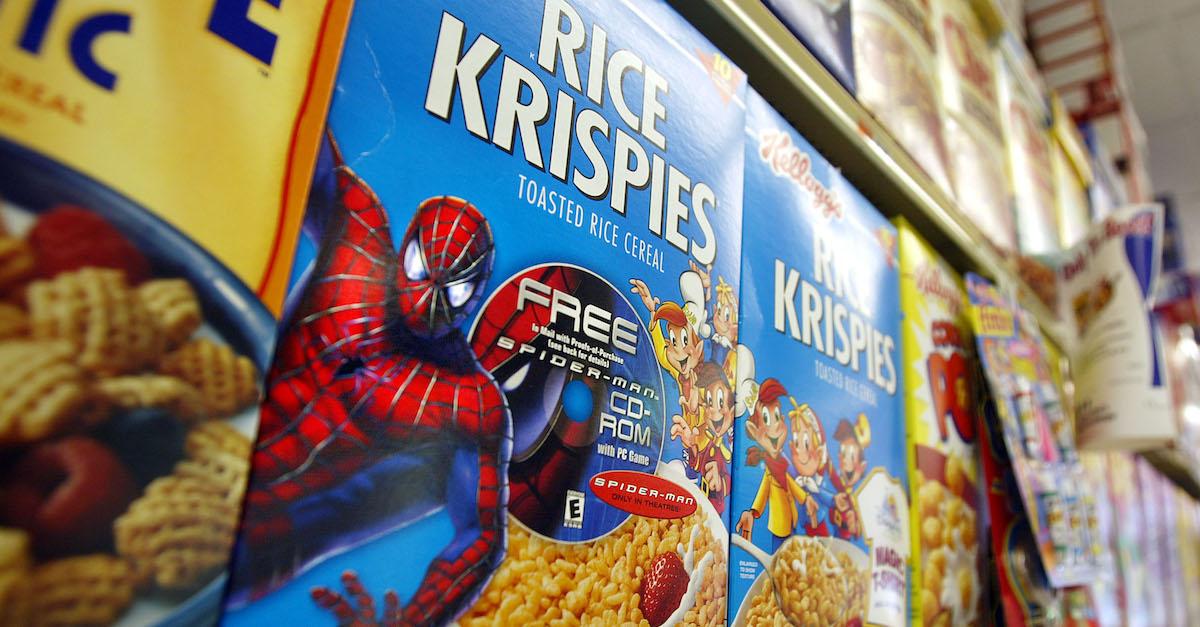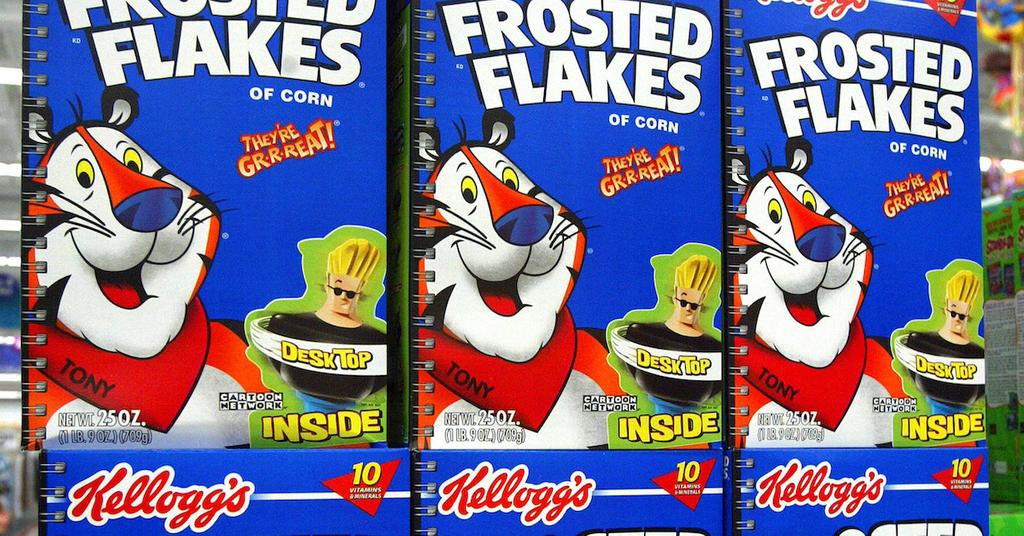Why Kellogg's Is Facing Boycotts: Explained
Are you ready to witness a consumer revolt? Kellogg's, the breakfast giant, is facing a firestorm of criticism and boycotts, fueled by a combination of controversial decisions and public sentiment that has created a perfect storm of outrage.
The controversy surrounding Kellogg's is multifaceted, encompassing issues from labor disputes to concerns about ingredients and even social justice stances. This complex situation has led to a significant backlash, impacting the company's reputation and potentially its bottom line. The seeds of discontent were sown in various incidents, ultimately coalescing into a consumer-driven movement.
One of the primary catalysts for the current situation was a statement made by W.K. Kellogg CEO Gary Pilnick. Pilnick suggested that consumers struggling with financial constraints could consider cereal as a dinner option. This statement, perceived by many as insensitive and out of touch with the realities of rising living costs and food insecurity, ignited a wave of criticism on social media, particularly on platforms like TikTok.
- Ccma Your Guide To Certification The Commission Explained
- William Abadie From Emily In Paris To Beyond His Career Life
The impact of this statement was amplified by pre-existing grievances. For instance, in response, people began boycotting Kellogg's to stand in solidarity with the company's employees, according to AP News. Around 1,400 employees from four of the company's plants, located in Omaha, Neb., have been involved in labor disputes. Labor advocates have been calling for a boycott of the companys products while workers are striking, calls that have been amplified in light of Kelloggs recent announcement.
The call to boycott was further fueled by health concerns. A closer look at why hundreds of people are protesting W.K. Kellogg over added food dyes in breakfast cereals sold in the U.S. While Kellogg's has removed these artificial dyes in other countries including Canada, the U.S. market continues to utilize them.
The boycott, proposed on TikTok, was planned to run from April 1st to June 30th, encouraging consumers to purchase products from other companies. This strategy aimed to send Kellogg's a clear message during the second quarter when sales are typically strong.
- Sebastian Stan From Romania To Hollywood Beyond
- Unveiling Alexa Ray Joel Bio Age More Latest News Updates
Furthermore, some have called for a boycott due to the company's perceived connections with Israeli companies, leading to calls for boycotting Kelloggs products among Palestinian activists, though the financial impact of this specific aspect remains limited.
The combination of labor disputes, ingredient concerns, and perceived insensitivity has created a potent mix of reasons for consumers to boycott the brand. The situation serves as a stark reminder of the power of public sentiment and the potential consequences of corporate decisions that are perceived as out of touch or harmful.
The core of the current crisis lies in the comments of W.K. Kellogg CEO Gary Pilnick, which triggered widespread outrage on platforms like TikTok. Pilnick's remarks, perceived as dismissive of economic struggles, were quickly amplified by social media users. Rallying around creators like Tall Girl and Rawcritix, TikTokers were encouraged to start boycotting Kelloggs after W.K. Kellogg CEO Gary Pilnick said that people struggling for money could eat cereal. The tone-deafness of the remarks struck a nerve, especially against the backdrop of rising living costs.
The public reaction was swift and decisive, with consumers organizing a boycott of Kellogg's products. "People plan to boycott Kelloggs after the CEO told people who cant afford groceries to eat Frosted Flakes for dinner. 'We outnumber them 100 to 1.'" The initial spark, ignited by Pilnick's words, quickly ignited a larger fire, drawing in other related concerns and grievances.
Beyond the immediate outrage, the boycott of Kellogg's products is a way for consumers to show their support for the striking workers and to pressure the company to negotiate a fair contract. This represents a wider consumer movement that encompasses solidarity and pressure on the company's labour practices.
This is not the first time Kellogg's has faced boycotts. "Kelloggs boycotts have been going on for years. They had a massive strike a year or two ago. Then the douchebag CEO said poor people should eat cereal for dinner to ease the financial strain." The history of labor disputes and public outcry underscores the ongoing issues that have fueled discontent.
The recent statements also appear in the context of rising operational costs, smaller pack sizes, and concerns about the use of artificial dyes in the companys products. Kelloggs Froot Loops cereal, sold in Canada and made with natural dyes (left), and Froot Loops cereal (right) sold in the U.S. and made with controversial artificial dyes. This has led to a call for a boycott regarding both ethical labor practices and product ingredients.
The call for a boycott quickly gained traction, with a targeted timeframe designed to maximize the impact. People are talking about boycotting Kellogg's starting April 1st, and the sentiment is gaining traction. The goal of the boycott, running from April 1st to June 30th, was to encourage consumers to purchase products from competing brands, sending a clear message during a critical sales period.
The company has been involved in various social justice campaigns, which some people support while others oppose. These differing opinions have led to a divided consumer base, with some choosing to boycott the brand. In this complex environment, the call for a boycott gained momentum and was amplified by social media.
A significant element of the opposition stemmed from the company's labor relations. For example, around 1,400 employees from four Kellogg's plants, including locations in Omaha, Nebraska, were at the center of labor disputes. This has led to widespread calls for a boycott of Kelloggs products, which could potentially spark the boycott of other food companies that are perceived to be similarly squeezing their employees and consumers.
The public response to the CEO's statements was particularly strong, generating widespread calls for a boycott on social media. The sentiment has fueled broader discussions about fair wages, product affordability, and corporate responsibility.
The calls for a boycott of Kellogg's products may potentially spark similar actions against other food companies that are perceived as squeezing their employees and consumers. The company could face a national boycott beginning this week after comments made by its CEO caused a huge backlash on the social media app TikTok.
The issues are not limited to labor disputes and CEO remarks. The use of artificial dyes in U.S. products, while absent in other markets, also contributes to the controversy.
The controversy extends beyond a single remark. Critics have cited the smaller pack sizes and increased prices as further examples of corporate practices that negatively affect consumers. "Were making the packs smaller, so it costs less," another person stated.
The situation surrounding Kellogg's highlights the power of consumer action and the significance of corporate responsibility. The events serve as a lesson in how a company's actions and public statements can impact its reputation and its financial performance.
This wave of criticism has created an environment where competitors can flourish. The boycott of Kellogg's products is providing opportunities for alternative brands. Aldis Frosted Flakes taste identical," one consumer pointed out.
The impact of the boycott is measurable. The boycott has had a noticeable impact on Kelloggs. While the specific financial impact remains to be seen, the company's reputation and public image have undoubtedly suffered.
The issue of food dyes, notably absent in other markets, fueled further consumer concerns. Kelloggs Froot Loops cereal, sold in Canada and made with natural dyes (left), and Froot Loops cereal (right) sold in the U.S. and made with controversial artificial dyes.
The issue surrounding Kellogg's and its CEO has become a focal point for broader discussions. This can affect not only the company itself but also other corporations. In a time of rising inflation and increased cost of living, the actions and statements of companies are under intense scrutiny.
The controversy surrounding Kellogg's is a complex situation with roots in labour disputes, public statements, product ingredients, and even social justice considerations. The resulting consumer backlash serves as a powerful lesson on the consequences of corporate actions and public perception.
- Christie Sides Unveiling The Wnba Coachs Life Career
- Ladd Drummonds 200m Fortune How He Built His Wealth Latest

Why Are People Boycotting Kellogg's in 2024? CEO's Comments Cause Stir

Why Are People Boycotting Kellogg's in 2024? CEO's Comments Cause Stir

Why Over 15 Million People are Boycotting Kellogg's... YouTube